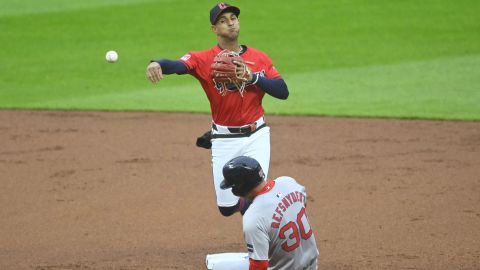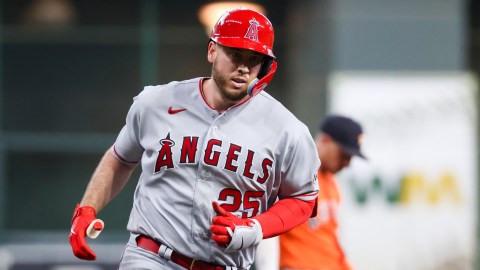In seven years as the general manager of the Boston Red Sox, Theo Epstein has never gone to salary arbitration with a member of his team. Ever. But there's a first time for everything.
There's also a second, third and fourth.
The deadline for the Red Sox to reach agreements with their arbitration-eligible players is rapidly approaching at 12 p.m. Tuesday, and the Sox still have four players under their control but still unsigned to 2010 contracts. There's Jonathan Papelbon, and he does this every year, agreeing to one-year contracts winter after winter. The other three, though — Ramon Ramirez, Manny Delcarmen and Jeremy Hermida — are fresh faces. And all of them appear like they could be headed to the courts.
The process is simple. Every player with fewer than six years of major league service time under his belt is under contractual control. Every player between three and six years of experience is free to negotiate with the team for his own salary — and if they can't agree on a dollar amount, they go to court and let the judge decide instead. The player gives a number, the team gives its own. The court picks one, and that's that.
It's not good business to go to arbitration. The absolute worst thing you can do to a team's chemistry is turn against your players in a feud over a few hundred grand — it's almost always best to settle out of court. And in the past, Epstein has always done that. The only time the Sox have even come close to arbitration in the past seven years was in the winter of 2007, when Wily Mo Pena didn't sign a deal until minutes before the deadline. (And Pena's relationship with the Red Sox was so rock-solid that the team traded him to Washington months later for minor leaguers and cash.)
But this year, the Red Sox appear headed for the courts. Unless they're waiting until the eleventh hour to sign four contracts at once — not likely — they've got at least one player arbitration-bound. And maybe all four.
So how much should these guys make? There are a lot of factors — past paychecks, results on the field, salaries of comparable players around the league. Add it all up, and what do you get?
For Papelbon, it will take a huge offer to get him to settle. The other elite closers in baseball are all making $11 million per year now, and in some cases more. Papelbon won't be eager to accept anything less. Papelbon is young and still cost-controlled, though, and the Red Sox will try to cheap out on him. Seeing as he only made $6.25 million last year, the Red Sox will try to avoid giving him too big a raise. There's a big gap between what Papelbon wants and what Epstein's willing to shell out. Expect this one to go to court, with the team offering $8 million or so and Papelbon asking for way, way more.
Ramirez was one of the most reliable middle relievers in the game last season. He gave the Red Sox a 2.84 ERA in 69 2/3 innings last year, and he's still getting better. He was a steal last season at $441,000 — and middle relief continues to be cheap in this market. A raise to $550,000 or so would be more than fair.
Delcarmen made $476,000 last season. He's around the same salary ballpark as Ramirez. He doesn't have the numbers that Ramirez does, but he has been around Boston long enough to earn the Red Sox' respect. Just like with Ramirez, a little over half a million should do the trick.
And then there's Hermida. He may be the new guy in town, but he's likely to be the richest fourth outfielder the Red Sox have had in a while. The Red Sox paid half a million bucks for Rocco Baldelli last year; Mark Kotsay, Bobby Kielty and the aforementioned Pena all survived Boston on less than $2 million. But for Hermida, a big payday is coming — he made $2.25 million last season in the Marlins' microscopic budget, and he'll only make more now with another year under his belt. Corner outfielders with some pop can thrive in the AL East, so expect the Red Sox to pay at least $2.5 million for theirs.
In all four of these cases, you hope the Red Sox can avoid going to court. Ideally, Epstein would get down to business at lunchtime Tuesday and hammer out contracts to keep all four players healthy. But that doesn't look likely — not this time around.
Theo Epstein has never been down this path before. He's always been able to negotiate with even the savviest, trickiest players. He knows what every player on his team is worth, and he can put a dollar amount on it. This time, he'll have to tell it to the judge.



